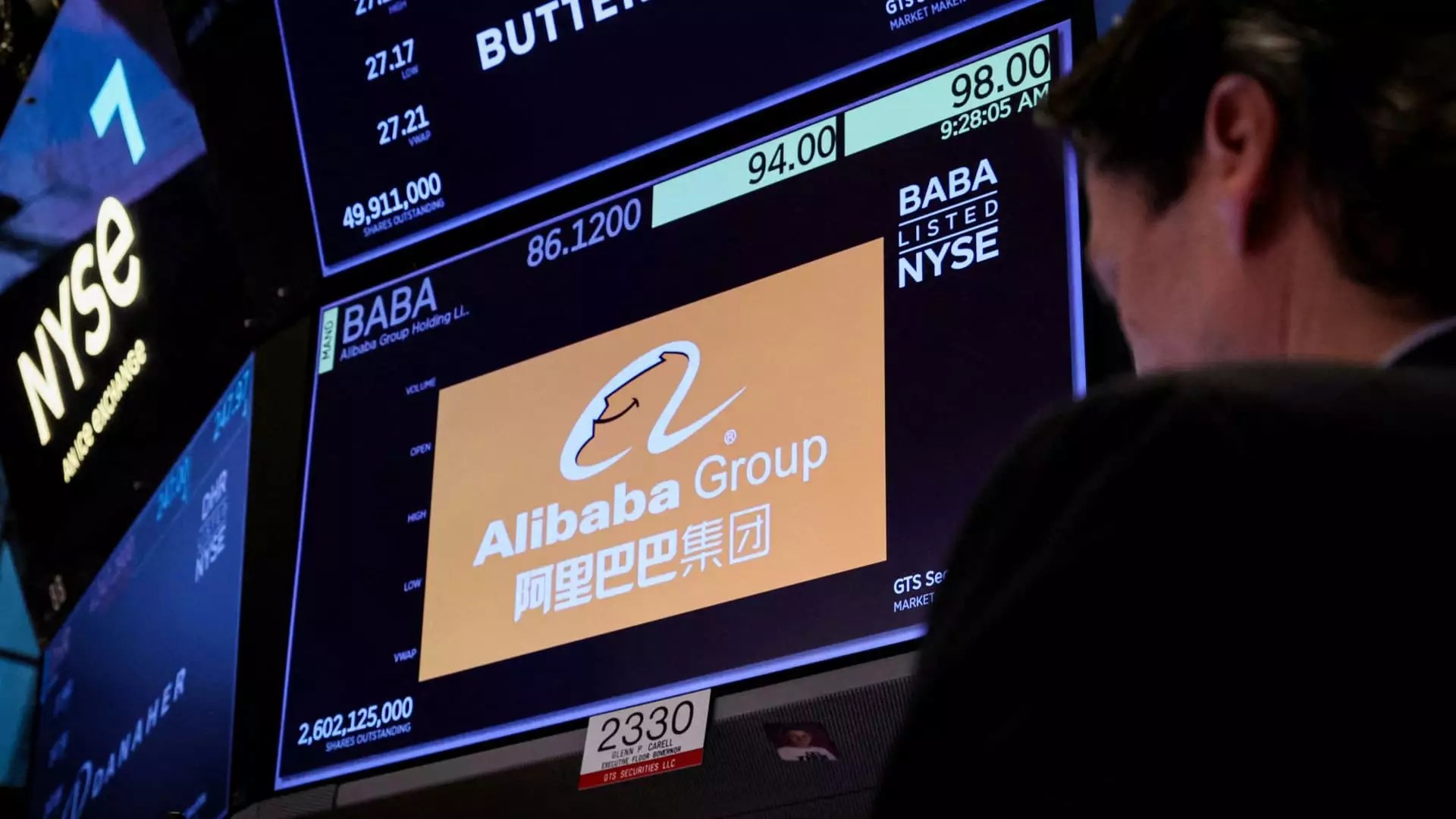The Chinese tech giant Alibaba has recently emerged as a significant player in the rapidly evolving artificial intelligence (AI) sector, capturing investor interest with an impressive share price increase of nearly 70% in 2025. This resurgence prompts a thorough examination of the company’s performance, market positioning, and the broader implications for investors in the tech ecosystem.
Alibaba’s announcement regarding its AI-related product revenue growth—reportedly in triple digits for six consecutive quarters—has fueled optimism among investors. The company’s Qwen AI model is carving a niche for itself as a formidable rival to established entities like DeepSeek, which has historically dominated the AI market. By securing a partnership to provide AI technologies for iPhones sold in China, Alibaba is not just keeping pace but actively innovating in a sector critical to future growth and competitive advantage.
The continuous growth in AI revenue highlights Alibaba’s strategy to diversify beyond its core e-commerce frameworks. The importance of AI in contemporary business cannot be overstated; firms that successfully integrate AI solutions are often at the forefront of technological advancements and customer engagement. This strategic pivot from Alibaba underscores a broader trend within the Chinese tech landscape as companies ramp up investments in AI to capitalize on new market opportunities.
Analyst sentiments surrounding Alibaba are notably bullish, with firms like Jefferies and UBS expressing confidence in the stock’s trajectory. Jefferies’ price target of $156, representing an 8% upside from recent closes, showcases the optimism vested in Alibaba’s AI ventures. Furthermore, UBS’s strategic shift from PDD to Alibaba in its model portfolio signifies a growing recognition of Alibaba’s potential in the AI domain. These endorsements from financial institutions provide a healthy validation of Alibaba’s strategic efforts.
However, the enthusiasm for Alibaba’s stock comes amidst a complex backdrop. Analysts note that while the company presently enjoys high levels of crowding among large Chinese tech stocks, interest in AI stocks overall has seen only modest growth compared to their American counterparts. This raises questions about whether the buzz surrounding Alibaba reflects a genuine structural opportunity or is merely a speculative bubble supported by short-term hype.
Despite Alibaba’s impressive growth, competitors like Tencent and Baidu are also leveraging AI to bolster their market positions. The recent performance of Baidu, which reported a year-on-year increase of 26% in its AI Cloud revenue, indicates that the competition in the AI space is intensifying. Although Alibaba’s performance outshines its peers at present, the tech industry remains notoriously volatile, and fluctuations in market dynamics or regulatory changes could swiftly alter fortunes.
JPMorgan has asserted a neutral stance toward Baidu while maintaining an overweight rating on both Tencent and Alibaba. This suggests that while they see growth in Alibaba, they also recognize the inherent risks present in such a dynamic market. Moreover, concerns flagged by Morgan Stanley regarding Alibaba’s rising capital expenditures—jumping from 3% to 11% of revenue—raise alarms about potential future profitability.
The, landscape is also marred by external economic factors, including weaker consumer sentiment and a persistent lag in enterprise digitalization in China. These factors could dampen Alibaba’s growth trajectory if not adequately navigated.
Alibaba’s remarkable stock performance and booming AI revenue have undoubtedly placed it back in the spotlight. However, investors must remain vigilant. While certain analysts predict sustained growth, the competitive landscape, with notable players like Tencent and Baidu making strides in AI, necessitates a cautious approach. Additionally, potential financial pitfalls illustrated by rising expenditures and economic challenges should not be ignored.
The path forward for Alibaba is illuminated by opportunities in the AI sector, but it is also riddled with uncertainties. Investors would do well to weigh the prospects against these risks as they navigate this vibrant yet unpredictable market. Ultimately, Alibaba’s journey may serve as a case study on balancing ambition with prudence in an era defined by rapid technological evolution and increasing competition.


Leave a Reply